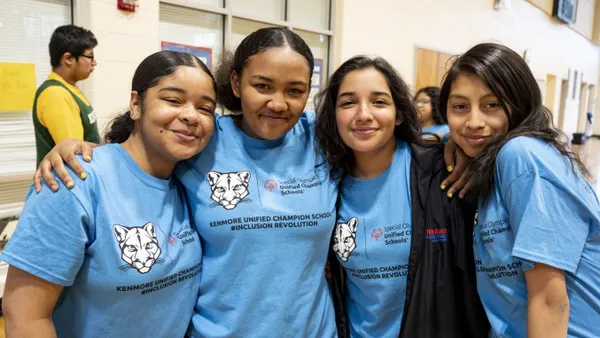Dive Brief:
- With 1 in 10 Washington, D.C., high-schoolers having reported being victims of physical dating violence in the last year, the city's schools are pushing to teach teens about healthy relationships and how to identify toxic behaviors in an effort to prevent unhealthy dating patterns before they begin, The Washington Post reports.
- Nationally, about 1 in 11 high school females and 1 in 15 high school males reported having experienced physical dating violence in the past year, according to the Centers for Disease Control and Prevention. The chances of teenage females experiencing sexual dating violence are even higher, at 1 in 9.
- The Trump administration is finalizing regulations that will direct K-12 and college campuses on how to deal with dating abuse, but victim advocates claim the proposal defines dating abuse with guidelines that are too narrow. Education Secretary Betsy DeVos, however, said the new rules will rebalance the system, which she says currently favors the accusers.
Dive Insight:
Despite being in an era of #MeToo, information about healthy teen relationships and the importance of consent is missing from many sexual education and health programs. To change that, victim advocates are working to get schools and state legislators to teach students about what healthy and toxic relationships looks like.
Statistics from the CDC show 30% of rape victims were first assaulted between the ages of 11 and 17.
Adopting a proactive plan can also prevent legal trouble for districts. In 2016, a North Carolina school district was sued over an incident that occurred on a Washington, D.C., field trip.
The Austin Independent School District in Texas sought community input on what to include and avoid in its revision of its human sexuality class. The responses ranged from the importance of understanding how social media impacts body images to learning how to deal with the word “no” appropriately. Sexting, digital technology, gender identity and orientation are all additional topics that may be discussed in middle and high school sexual education classes.
There are many programs that can help schools teach students how to have healthy relationships, as well. For example, the Center for Healthy Teen Relationships has a curriculum designed to help schools prevent dating violence and sexual assault, and Discovery Education has free lesson plans on how to prevent sexual abuse and harassment.












